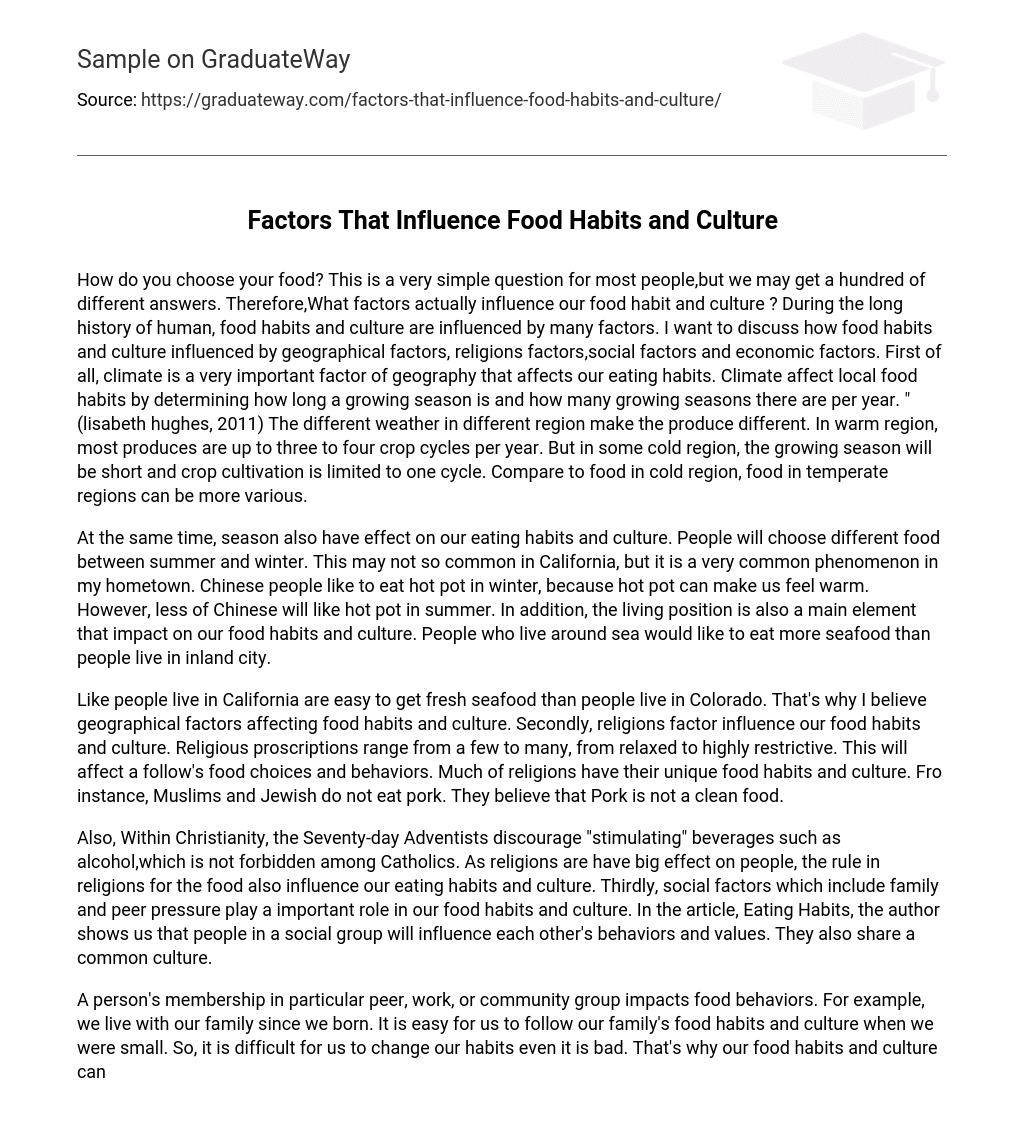The factors that shape our food habits and culture are diverse and plentiful. Geography, specifically the climate of a region, is a major influence. The climate determines the length and number of growing seasons, which in turn affects local food habits. For example, warm regions can have multiple crop cycles per year, resulting in a wider range of produce. In contrast, cold regions have a shorter growing season and are limited to one crop cycle. Geographical factors like climate significantly impact our food choices.
Religion is another influential factor. Different religious beliefs often dictate dietary restrictions or preferences. Certain religions forbid the consumption of specific foods such as pork or beef. These dietary rules are an essential part of cultural identity and affect food choices within religious communities.
Social factors also play a role in shaping our food habits and culture. Food choices can be influenced by social norms, traditions, and customs within a particular community or society. Certain foods may be associated with celebrations or special occasions, leading to increased consumption during those times.
Lastly, economic factors are crucial in shaping our food habits.The presence and cost of specific foods can be affected by economic conditions.Different income groups may have differing access to healthy food choices due to socioeconomic factorsGeographical, religious, social, and economic factors collectively shape distinctive culinary customs and preferences worldwide.
The season and location have an impact on our eating habits and culture. Food choices vary among people in different seasons and locations. Although this may not be as prominent in California, it is a customary practice in my hometown. In winter, hot pot is popular among Chinese people to stay warm, while during summer, its popularity decreases. Moreover, our place of residence influences our food preferences and culture. Those living near the sea tend to consume more seafood compared to those residing inland.
Geographical factors have a notable impact on food habits and culture, as seen in the availability of fresh seafood being easier for those living in California compared to those living in Colorado. Additionally, religious beliefs significantly influence food habits and culture. Religious proscriptions can vary in their strictness and scope, leading to different food choices and behaviors. Many religions have their own distinct food customs; for instance, both Muslims and Jews abstain from consuming pork due to regarding it as unclean.
Christianity has varying perspectives on beverages. Seventy-day Adventists discourage alcohol, while Catholics do not prohibit it. Religious guidelines concerning food significantly impact individuals and shape our eating habits and culture. Additionally, social aspects like family and peer pressure also have a crucial role in molding our food habits and culture. In the article “Eating Habits,” the author demonstrates how individuals within a social group influence each other’s behaviors and values, ultimately resulting in the formation of a collective culture.
Individuals’ food behaviors are influenced by their association with specific peer, work, or community groups. This can be observed in the way we adopt our family’s food habits and culture from a young age, making it challenging to change these patterns even if they are harmful to our well-being. Consequently, our ancestral heritage strongly shapes our food habits and culture. Additionally, economic factors play a role in shaping our food behaviors and culture as studies consistently demonstrate significant differences in food consumption across various social classes.
Money, values, and consumer skills influence individuals’ purchasing decisions. Healthy food is usually more expensive than unhealthy diets, leading low-income groups to consume imbalanced diets with few fruits and vegetables. This illustrates the significant impact of economic factors on our daily food habits and culture. Overall, geographical, religious, social, and economic factors collectively shape our food habits and culture.
Here is a reference concerning a particular subject.
Hughes, L. (2011). Geographical factors affecting food habits. Yvonne,M. (2010). What influences the eating habits of the American people? Food today(2004). Why we eat what we eat:social and economic determinants of food choice.





